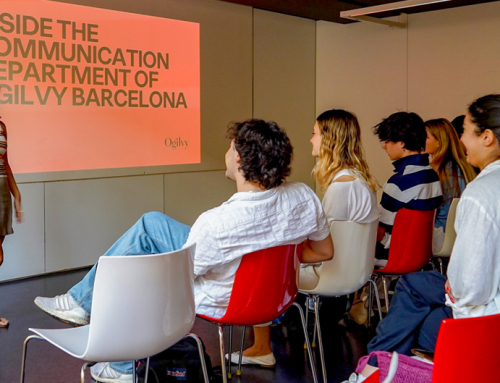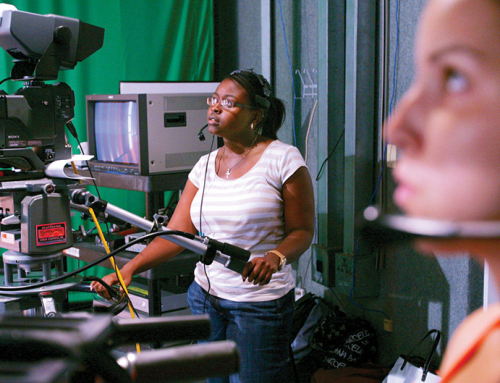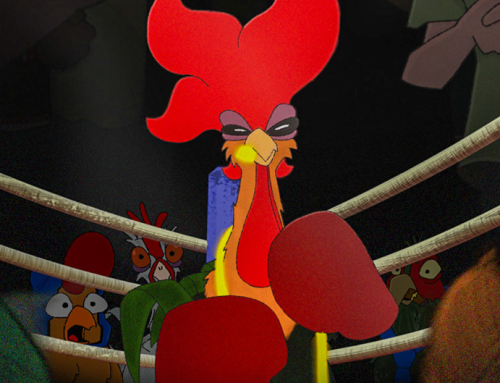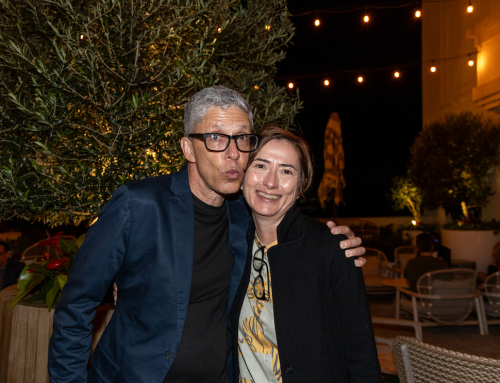By Michael R. Malone
Student filmmakers in the School of Communication “Human Book” project have generated short films, all entries in the Canes Film Festival, that challenge stereotypes, celebrate resiliency, and bring the best of humanity into sharp focus.
Charged with using their cameras to tell the stories of extraordinary individuals, student filmmakers in the M.F.A. Documentary program have crafted short narrative films that explore a spectrum of inspiring personalities—a Ukrainian ballet dancer, a reformed felon in Coconut Grove, and entrepreneurial sisters who share their love for dance.
The films were generated as part of the coursework for students in the first cohort of the new documentary program in the University of Miami School of Communication, and they are all entries in the Canes Film Festival that kicks off this weekend.
Sanjeev Chatterjee, professor in the School of Communication, explained that the idea for the “Human Book” project takes a page from the Human Library Organisation, an international nonprofit headquartered in Copenhagen, Denmark. The learning platform uses the arts to create a safe space for dialogue, challenge stereotypes, and to “unjudge” someone.
“Our Human Book project is loosely based on that idea. It allows for students to find a subject who they always wanted to meet or talk with, but never had the chance, and to try and make a portrait of them on video,” explained Chatterjee, a filmmaker himself who has focused on global documentary work.
The project launched with the arrival of the first cohort of six students in the M.F.A. Documentary program last fall and Chatterjee plans to continue it. The interdisciplinary program combines cinematic arts with journalism.
Oana Martisca Whaples, originally from Romania, has focused her “Dancing for Ukraine” film on Yuliia Moskalenko, a Ukrainian ballerina who escaped from Kyiv during the Russian invasion and has found a new home with Miami City Ballet.
Moskalenko, formerly a principal in Ukraine’s preeminent ballet company, the National Opera of Ukraine, was granted a visa to the United States. Once with the Miami City Ballet, however, she suffered a serious injury during performance—putting her career in jeopardy.
Whaples’ film focuses on the ballerina’s journey of both physical and emotional recovery.
“The film focuses on Yuliia’s love for dance and determination to get back on stage, but also gives a glimpse into resilience from war, the artistic power of expression, and the healing part of art,” she explained.
Whaples had been living in New York and developing a creative career as a painter, a writer, and photojournalist. She moved to Peru where, while exploring rain forest wildlife in the Amazon jungle, she became increasingly motivated to express what she was experiencing through film.
“I was painting and taking pictures but began to feel that film had something that I could not find in other mediums,” she explained. She learned of the University program and connected via Zoom with Jim Virga, the program’s advisor. Very encouraged, she applied for and was granted a scholarship to attend.
Once on campus and in the program, she talked to a friend who happened to know a close friend of Moskalenko’s. She reached out to the ballerina, and the two arranged to meet over dinner.
They agreed to collaborate and their meetings continued—at the ballet company’s studios, the Lennar Foundation Medical Center for therapy sessions, and at the beach—as the film’s storyline unfolded.
“My film explores the concept of homeland, what we make it to be, and especially about resilience,” Whaples said. “Resilience in relation to her injury—Yuliia does not allow herself to think about it or to cry because of the pain she feels for the war in her country. She feels that she does not have the right to show her weakness,’’ she added. “I’m so impressed by her strength and finding how this relates to art and its ability to empower us.”
In addition to the Canes Film Festival, Whaples’ film will be screened by FilmGate on July 26 at Silverspot Cinema in downtown Miami.
Zanolee Grant’s film, “One Shot,” focuses on “Gator Overtown,” a man whose appearance caught her eye in Coconut Grove and whom she later discovered, through a series of meetings, had spent time in prison for attempted murder but has grown to become a contributing and revered member of the community.
“Gator is representative of the possibility of redemption, and my film tries to capture the idea that good people can do bad things yet redeem themselves for the community good,” Grant said.
“Learning his story changed my ideas about looking at a person and coming to validate them and how they can become a member of society,” she noted.
Grant, with roots in Honduras, grew up in central Florida. She volunteered often in her church group, got involved in civic groups, and became a union organizer and helped to register voters through Organize for America.
After she earned her B.A., she went back to Honduras for several months “just to gather my thoughts and figure out what I wanted to do” and became intrigued by the history and plight of the people in Honduras’ Bay Islands, considered a “Caribbean Crown Jewel.”
She returned to school to study film and photography at Florida International University and, as part of her graduate studies, researched and wrote a 40-page thesis on the Bay Islands history and heritage but was frustrated that her lengthy written documentary would have little resonance or impact.
“I’d had a real and growing interest in film for 10 years, understanding that it’s accessible to all people and would be a strong medium to get my message out,” she said. She registered and was accepted into the M.F.A. Documentary program.
Andy Bohen Chen, who was born in Beijing and grew up most of his life in New York, earned an undergraduate degree from Wake Forest University with a major in anthropology and a minor in film studies and cultural and heritage preservation. His senior thesis focused on the Eastern Band of Cherokee Indians and preserving their history in North Carolina.
“I always had a big interest in film, especially documentary, because it’s so closely related to anthropological work,” Chen said. One of his professors emailed him information about the University’s M.F.A. Documentary program and he pursued the application.
His film for “Human Book” and the film festival is called “Dancing Dreams” and focuses on two sisters, one of whom is a junior at the University, who have successfully opened a dance studio with two locations in Homestead. The sisters, ages 21 and 23, are sharing not only their passion for dance, but also teaching important life lessons and helping the young dancers become better human beings.
“Most people don’t understand the hard work and the dedication that it takes to do what they’re doing at such a young age,” Chen said.
Crafting the film has drawn him closer to his interest in anthropology as it relates to film, drawing across a longer line of time, and he’s incorporating a significant amount of archival footage.
“The film’s message has to do with identity, which is a tricky question and something to struggle with, and about how much we can learn from people who may seem so different from us,” Chen said.
Initially intent on capturing the dancing aspect for the film, Chen said that capturing the quiet moments of the sisters’ friendship and sisterhood has been an especially pleasant surprise and reflect a deeper meaning in the documentary.
He, too, plans to continue to expand the current version of the film and to enter it in other film competitions.
The Canes Film Festival will screen 100 films over three nights at the Cosford Cinema. View the 2023 screening schedule.
This story originally appeared at https://news.miami.edu/stories/2023/04/crafting-films-to-unjudge-celebrate-humanity.html.






